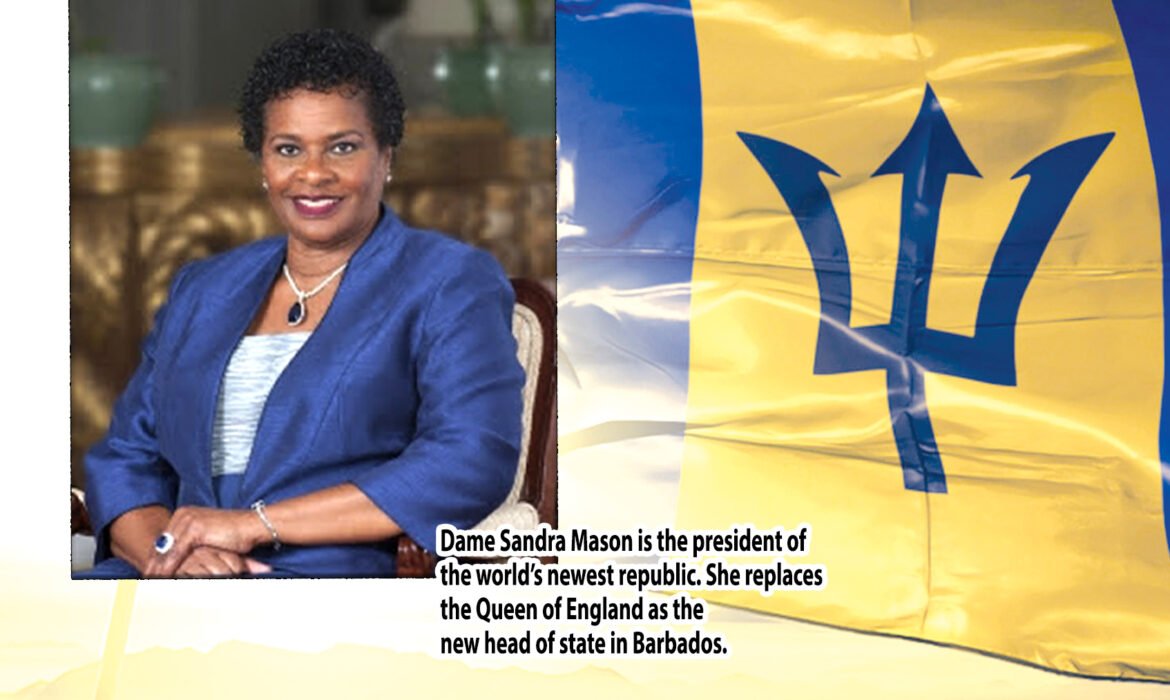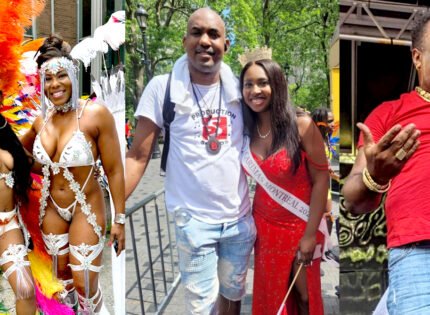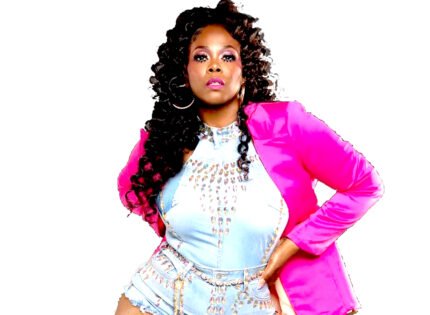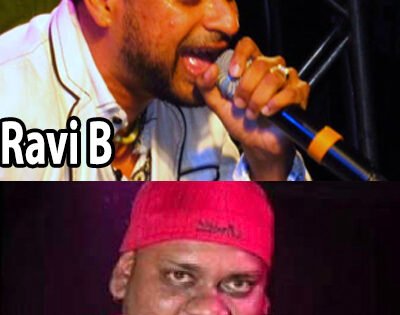The celebration of music, dance, pomp and pageantry started at dusk on November 29, and extended through to midnight when the country erupted in an outburst of joy to mark the beginning of an era for Barbados: It’s transition into a Parliamentary Republic and the installation of its new president to replace the Queen of England as head of state.
The ceremony took place at the National Heroes Square in front of dozens of dignitaries from across the Caribbean and around the world including The Prince of Wales, Prince Charles, heir to the British throne as well as local political leaders, celebrities and a massive gathering of Barbadians.
At midnight, 55 years to the day since Barbados earned its independence from Britain, a 21-gun salute and the national anthem heralded the new republic, ushering in the former Governor General Dame Sandra Mason as the new President and relegating the title “Her Majesty” to the dustbin of history.
The 72-year-old Mason, who was the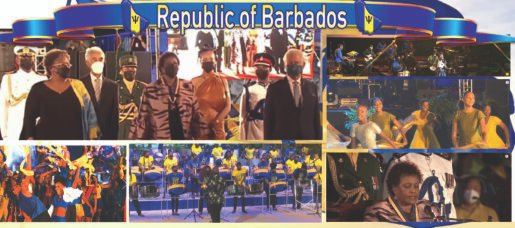 first female member of the Barbados Bar Association brings an illustrious resume of achievements and contributions to her new role as the symbolic head of state after decades of services as a lawyer, judge and ambassador.
first female member of the Barbados Bar Association brings an illustrious resume of achievements and contributions to her new role as the symbolic head of state after decades of services as a lawyer, judge and ambassador.
The birth of the world newest republic also represented a significant achievement for Prime Minister Mia Mottley, who made it a cornerstone pledge of her administration since she lead the Barbados Labour Party into power in 2018, in a sweeping victory.
While there’s little change to the basic system of governance in Barbados and to its population of about 290,000, the declaration of republic brings with it a number of institutional and symbolic name changes such as to the police force and government house.
The ceremony was highlighted also by a series of spectacular performances by some of the nation’s leading dancers, singers and musicians including the national youth steel orchestra.
And to commemorate the occasion, Prime Minister Mottley presented country’s highest award to Prince Charles, and named superstar performer and actress Rhianna a National Hero, a designation earned by only 10 other Barbadians.
Legendary cricketer Sir Garfield Sobers is Barbados’ only living National Hero and was at the Republic ceremony.
Reports coming out of the islands point to widespread pride and satisfactions among Bajans as they continue to disentangle themselves from the web of oppression that defines their relationship with the British monarchy, from slavery to colonization to the struggle for independence.
Barbados’ historic ties with England dates back to 1625, when it was claimed for King James or whoever monarch was in power at the time. At the height of the slave trade, thousands of captive Africans were to the island, which has been described as “ the birthplace of British slave society and the most ruthlessly colonized by Britain’s ruling elites.”
However, since winning its independence, it has been a slow process shaking off the shackles of colonization.
In 2005, it made a major moved when it walked away from the Privy Council of the UK as its final Court of Appeal and adopted the Caribbean Court of Justice(the CCJ) based in Trinidad and Tobago.
However, Barbados will remain part of the Commonwealth, a 54-country amalgam of former colonies maintaining social and economic ties to Britain and the monarchy.
On January 15, 1859, Haiti became the world’s first Black Republic and has been on a perilous journey ever since to consolidate its democracy and provide for its citizens.
It was not until the 1970s, after decades of struggles for independence that several other Caribbean nations including Dominica, Trinidad and Tobago, Guyana and Suriname extricated themselves from the monarchy and became republics.


